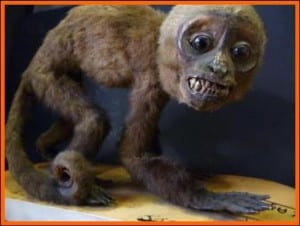Specimen of the week 374: Hypsilophodon foxii cast
By ucwehlc, on 18 January 2019
Stop press! This week we are revisiting an old specimen of the week to bring you breaking dinosaur news.
Don’t worry, we didn’t break it, specimens of the week is…
 Close
Close
News and musings from the UCL Culture team

By ucwehlc, on 18 January 2019
Stop press! This week we are revisiting an old specimen of the week to bring you breaking dinosaur news.
Don’t worry, we didn’t break it, specimens of the week is…
By Mark Carnall, on 13 April 2015
 This week’s specimen of the week is another specimen highlighted in our current exhibition Strange Creatures: The Art of Unknown Animals and yet another dinosaur specimen from me. In our exhibition about representing animals through art and science, this specimen is in a case about how understanding of extinct animal biology has changed through the discovery of new fossils and advances in analytical techniques and tools.
This week’s specimen of the week is another specimen highlighted in our current exhibition Strange Creatures: The Art of Unknown Animals and yet another dinosaur specimen from me. In our exhibition about representing animals through art and science, this specimen is in a case about how understanding of extinct animal biology has changed through the discovery of new fossils and advances in analytical techniques and tools.
Today’s specimen is often described as chicken-sized which is one of the go-to standard measurements of animals in popular culture, the full scale goes; mouse-sized, chicken-sized, turkey-sized, terrier-sized, volkswagen-sized then various dimensions expressed in double-decker buses ending with Olympic swimming pools and football pitches. There is a separate system for brain sizes oriented around fruit, nut and sporting ball sizes.
This week’s specimen of the week is… (more…)
By Debbie J Challis, on 1 February 2011
Museum research can be like detective work – like Sherlock Holmes in a filing cabinet. (If there are any Benedict Cumberbatch fans reading this, don’t get distracted by that image). A vital part of clue finding is not to trust what you are told by museum databases.
At the moment I am working on an exhibition and events programme around a series of photographs that the archaeologist Flinders Petrie took for ‘The Committee appointed for the purposes of procuring, with the help of Mr Flinders Petrie, Racial Photographs from the ancient Egyptian Pictures and Sculptures’. In actual fact, Petrie only received £20 from them. The scientist Sir Francis Galton gave almost £300 from ‘his own pocket’ towards the expedition in 1886-87. (More on Galton in future posts. . .). (more…)